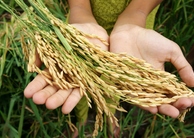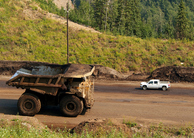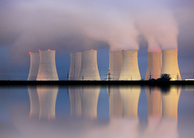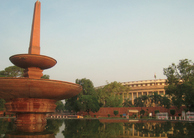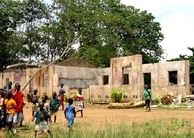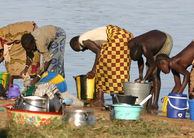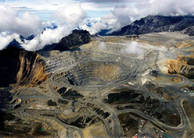|
Resources (tagged articles)
The keyword Resources is tagged in the following 26 articles.
2021, Vol. 13 No. 06
This research study explores factors that present barriers to reporting workplace incidents and contribute to cultures of non-report. The research purpose was to explore human, workplace/organizational, and external factors identified by industrial... Read Article »
2017, Vol. 10 No. 2
In December 1948, the United Nations adopted the Universal Declaration of Human Rights, which recognized the universal human right to food. Most recently in July 2010, the U.N. General Assembly adopted resolution 64/292 that recognized the human... Read Article »
2016, Vol. 2016 No. 2
This paper evaluates the ethical dilemma coalition forces had to face when deciding to target and take out ISIL's primary source of revenue – oil. By gathering the impacts ISIL has had on the globe as well as the impacts aerial attacks could... Read Article »
2016, Vol. 8 No. 04
In public discourse, Africa and the Middle East have become synonymous with ethnic and religious conflict, whereas Europe is known as a bastion of peace and stability. But are areas known for their ‘high conflict’ truly more susceptible... Read Article »
2016, Vol. 2016 No. 1
This paper explores both the positive and negative externalities associated with nitrogen and phosphate-based fertilizer use. Using 57 scholarly journal articles, government reports, manuscripts, and news articles; a comprehensive review was made... Read Article »
2015, Vol. 7 No. 09
Public relations is a growing field in the United States (Botan, 1992, p. 149). This growth can be partially explained by the fact that public relations is an exercise in power (Curtin & Gaither, 2007, p. 235; Walker, 2006, p. 401). Throughout... Read Article »
2015, Vol. 5 No. 1
Alberta's resource power lies within the energy sector; in particular, the oil and gas industry. However, this same energy sector is contributing heavily to the destruction of the landscape and is contaminating the environment. This destructive... Read Article »
2015, Vol. 7 No. 01
The majority of oil extracted from the Alberta oil sands is processed, diluted, and then sold to the US. The implications that arise from the oil sands production are a litany of health, environmental, and economic concerns. Despite all the implications... Read Article »
2014, Vol. 4 No. 1
In the case of Japan, which lacks any significant fossil fuel reserves (Gasparatos & Gadda, 2009, pp. 4038-4048) some alternative forms of energy production have been implemented. Japan has implemented alternative energy options such as nuclear... Read Article »
2013, Vol. 7 No. 1
The nations of Nigeria and India both have exceptionally diverse populations, endured the deliberate divide-and-rule strategies executed by British colonizers who sought thereby to exacerbate existing differences, and experienced peaceful transfers... Read Article »
2013, Vol. 7 No. 1
Why did Sierra Leone experience such a protracted civil war between 1991 and 2002? Sierra Leone has been beset with challenges since achieving independence from Britain in 1961, in particular its brutal civil war that resulted in tens of thousands... Read Article »
2013, Vol. 3 No. 2
The issue of water management has become one of increasing importance. Any new policy regarding resource management must balance the needs of the environment, the municipalities, and industry. In an effort to reconcile these needs, this report reviews... Read Article »
2013, Vol. 5 No. 09
This article aims to investigate the effects of moderators such as culture, power dynamics and political factors on the negotiation behavior and processes displayed in a dyadic, geopolitical negotiation scenario by using a hybrid model of well-established... Read Article »
2011, Vol. 3 No. 08
The extraction of non-renewable natural Resources in the form of large-scale mining projects has intensified in recent years in Latin America. In fact, the World Bank and other international financial institutions have continued to encourage countries... Read Article »
2011, Vol. 2010/2011 No. 1
The territorial claims on the North Pole are the latest contentious grey area amongst world forces – Russia, Canada, the USA, Denmark and Norway. The events could have been the perfect opportunity for a lesson in puppet mastery on the international... Read Article »
2011, Vol. 2010/2011 No. 1
Access to water has been a major factor in international relations for many centuries, particularly in the Middle East and North Africa1, a region that can regularly run out of adequate water Resources.2 After the emergence of nation-states in the... Read Article »
2010, Vol. 2 No. 11
We are at war. Yes, I said it. We are at war. We are at war, with ourselves, against ourselves, and by that, I mean we are damaging the very planet that we subsist on. Where will we be without this planet? We are destroying ourselves, bit by bit... Read Article »
2010, Vol. 4 No. 1
The Niger Delta conflict is one created and exacerbated by the oil and natural gas riches of the region. Great hydrocarbon wealth has been extracted over the past decades, yet Delta residents continue to live in underdeveloped and polluted circumstances... Read Article »
2010, Vol. 4 No. 1
The initial 100 days of Viktor Yanukovych’s presidency appeared to be a complete departure from the Yushchenko presidency. While publicly reiterating his commitment to integration with the European Union and supporting transparency, freedom... Read Article »
2009, Vol. 1 No. 11
It is no secret that China today faces serious environmental challenges. The combination of a rapidly growing population and a lack of viable communication between the state and local communities have produced a difficult situation. Many argue... Read Article »
2009, Vol. 2 No. 2
The responsibility of Georgian President Michael Saakashvili for the war with Russia continued to be hotly debated in Georgia, Russia and the world several months after its end.1 Indeed, there are various views about Saakashvili's decision to attack... Read Article »
2009, Vol. 2 No. 2
Two years ago, my mom handed me the article, "Below a Mountain of Wealth, a River of Waste," from The New York Times, describing Freeport-McMoRan's mining activities in Papua New Guinea. After reading "Below," I knew that the world had to change... Read Article »
2008, Vol. 1 No. 2
Following the collapse of the Soviet Union, the newly-formed Russian Federation faced a considerable economic downturn. During the post-Soviet economic collapse spanning from 1991 to 1998, Russian gross domestic product (GDP) fell from $509,381,... Read Article »
2007, Vol. 1 No. 1
China’s emergence as a key player in Africa, the impact of its presence and its challenges to traditional Western pre-eminence in African economies are among the hallmarks of the changing economic scenario in the twenty-first century. Beijing... Read Article »
2007, Vol. 1 No. 1
A country’s transition from Cold War-era third-world dependence into competitive, global autonomy is often a difficult and complicated process. Like many other developing nations today, Mexico is meeting its fair share of stumbling blocks... Read Article »
2007, Vol. 1 No. 1
Poverty effaces dreams. Oppression defeats hope. These conditions ruin the human spirit, which no one should tolerate. Liberals and conservatives agree on this. Consensus does exist to increase the standard of living, afford greater opportunities... Read Article »
Expedited Article Review
Submit an article and get a decision fast.
If you need a fast decision, INQUIRIES Journal offers expedited processing of your submission for a small fee. Depending on the expedited review option you choose, you can receive a decision in as few as 5-days.
In addition to a shorter review period, the fee supports the journal's continued operation and open-access publishing model. Standard submissions are always free. Submit Now » - Submit an Article to Inquiries Journal -
|












